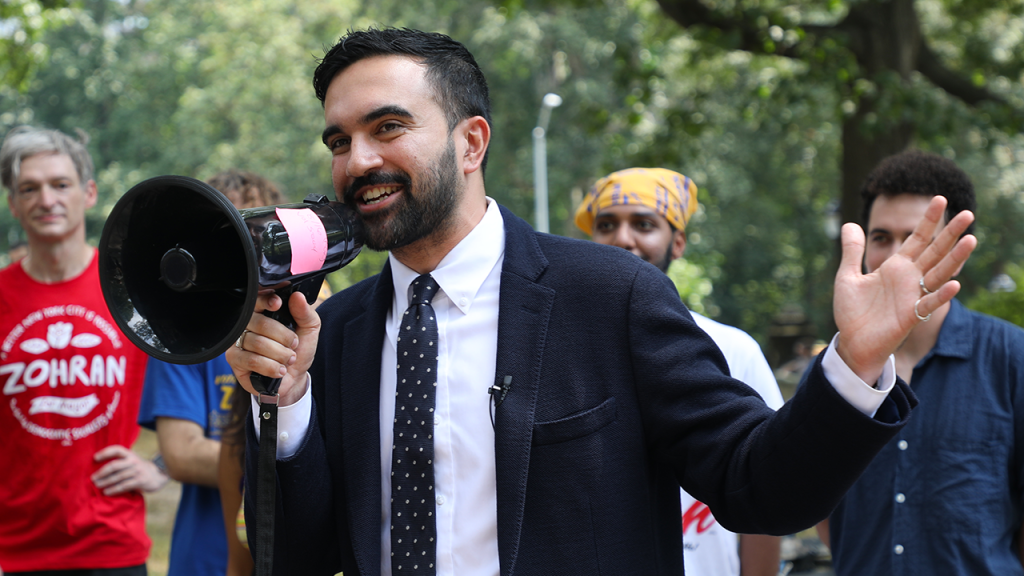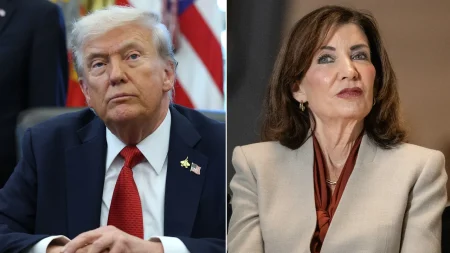Bernie Sanders and Zohran Mamdani Join Forces Against “Oligarchy” in NYC
In a powerful demonstration of progressive solidarity, Senator Bernie Sanders and New York City Democratic mayoral nominee Zohran Mamdani are uniting their voices to challenge what they describe as economic inequality and corporate dominance in America’s financial capital. Their “Fighting Oligarchy” event in Brooklyn represents more than just political theater—it embodies a growing movement within the Democratic party that seeks to address the widening wealth gap and affordability crisis affecting everyday Americans. “It is an honor to welcome Senator Sanders to New York City as we fight against the corporate greed, billionaires, and corrupt politicians responsible for the affordability crisis,” declared Mamdani, whose surprising primary victory earlier this year sent shockwaves through New York’s political establishment and business community. This partnership brings together two generations of democratic socialists who share a vision of economic fairness in a city where the contrast between extreme wealth and struggling communities grows increasingly stark.
The timing of this collaboration is particularly significant against the backdrop of reported political maneuvering by former President Donald Trump, who has labeled Mamdani a “100% Communist Lunatic.” Reports in The New York Times have suggested Trump discussed offering incumbent Mayor Eric Adams a position in a potential Trump administration to influence the mayoral race against Mamdani—allegations that Trump and former Governor Andrew Cuomo have denied. Meanwhile, Mamdani remains focused on his campaign message: “While oligarchs and Donald Trump try to place their thumb on the scale of this election, we’re laser-focused on the New Yorkers who built this city, call it home, and deserve a leader who will deliver dignity for all.” This rhetoric underscores the populist appeal that both Sanders and Mamdani have cultivated among voters who feel disenfranchised by traditional politics.
The Sanders-Mamdani alliance represents more than just a shared political ideology—it reflects a strategic effort to reinvigorate the progressive wing of the Democratic party following significant electoral setbacks in 2024. Sanders’ “Fighting Oligarchy” tour has already mobilized hundreds of thousands of supporters across the country, with his campaign reporting turnout of more than 300,000 people across 34 rallies in 20 states. The Vermont senator’s endorsement of Mamdani’s primary campaign, alongside that of Representative Alexandria Ocasio-Cortez, provided crucial momentum that helped propel the underdog candidate to victory. Their ongoing collaboration seems designed to channel this energy into a broader movement challenging economic inequality. “At a time of massive and growing income and wealth inequality, we are building a strong grassroots movement to take on the billionaire class and corporate greed,” Sanders explained in a statement before the Brooklyn town hall.
The political visions of Sanders and Mamdani share substantial common ground, particularly in their critiques of wealth concentration and their proposals for economic reform. Mamdani’s platform includes progressive policies such as rent freezes, city-operated grocery stores, free public transportation, and raising the minimum wage—initiatives he proposes to fund through increased taxation on corporations and the wealthiest New Yorkers. These ideas closely align with Sanders’ longstanding democratic socialist agenda, which challenges the influence of billionaires in American politics and advocates for universal healthcare, free college education, and more equitable taxation. “No, billionaires should not be able to get away with not paying their fair share of taxes while working people are being, in many cases, overtaxed,” Sanders told Fox News Digital, framing the issue as one of basic fairness rather than radical redistribution.
Their joint appearance at the Labor Day parade in Manhattan before the Brooklyn town hall underscores another crucial aspect of their political alignment—support for organized labor. Both politicians view strong unions as essential counterweights to corporate power and necessary advocates for working-class Americans. After headlining the New Hampshire AFL-CIO’s annual Labor Day breakfast, Sanders emphasized that Trump is “leading us toward authoritarianism, toward more income and wealth inequality and making the planet even more dangerous.” This framing positions the progressive movement not merely as an alternative economic vision but as a democratic bulwark against authoritarian tendencies—a theme that resonates with Mamdani’s campaign rhetoric about defending the interests of ordinary New Yorkers against powerful financial interests.
The Sanders-Mamdani event occurs at a pivotal moment for progressive politics, testing whether their message can transcend traditional political divisions and appeal to a broader electorate concerned about economic security and fairness. Sanders has explicitly positioned their movement as a democratic alternative to authoritarianism, stating, “When we stand together we can defeat authoritarianism and create an economy that works for all our people, not just the privileged few.” Mamdani’s characterization of Sanders as “Brooklyn through and through” reflects an attempt to ground their progressive vision in authentic community connections rather than abstract ideology. As November approaches, the success of Mamdani’s mayoral bid may serve as a significant indicator of whether the democratic socialist agenda championed by Sanders can translate into electoral victories in one of America’s most economically complex and politically diverse cities. Their shared fight against “oligarchy” represents not just a political campaign but a referendum on the future direction of progressive politics in America.















